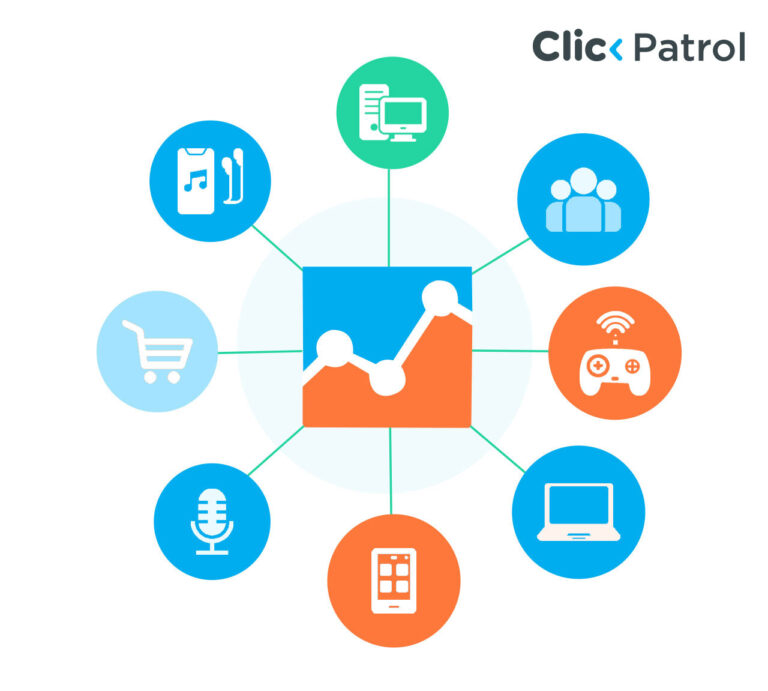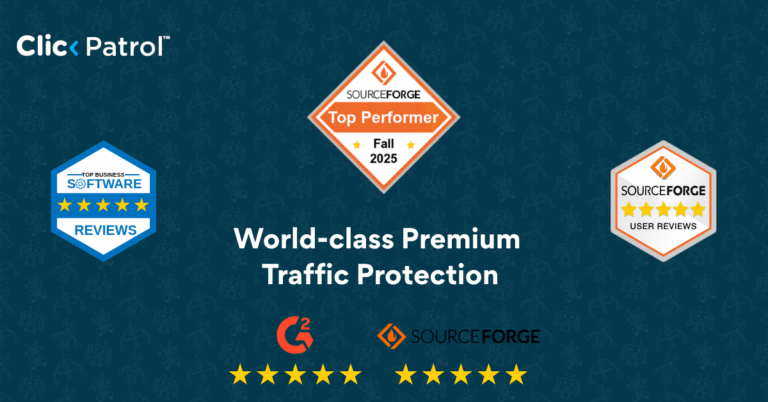
How to Prevent Click fraud on Joomla
Abisola Tanzako | Aug 20, 2024

Table of Contents
How do you manage click fraud on Joomla?
For many website owners and companies trying to expand their customer base, digital marketing has become an essential source of revenue. However, the danger of click fraud has increased along with its popularity. Understanding and preventing click fraud is crucial for users of popular Joomla content management systems (CMS) to preserve the integrity and efficacy of their online presence.
Click fraud is when individuals or automated systems create invalid clicks on ads, frequently with malicious motivations. Any website displaying ads is vulnerable to this activity, including those created using the Joomla platform. Joomla is a flexible and popular content management system (CMS) that runs millions of websites globally, which makes it a possible target for click fraud schemes. This article will walk you through identifying and preventing click fraud on Joomla! and help you learn about Joomla and its capabilities.
What is Click fraud?
Click fraud can take various forms, from competitors manually clicking on advertisements to sophisticated bot networks generating thousands of fake clicks. The motivations behind such actions range from depleting competitor ad budgets to artificially inflating website revenue. This invalid activity can be categorized into several forms:
1. Click bots and BotNets:
Click bots are automated programs that mimic human behavior by repeatedly clicking on ads. These bots can simulate mouse movements, accept cookies, and even fill out forms, making them challenging to detect. Botnets, on the other hand, involve compromised devices controlled remotely to generate large volumes of fraudulent clicks, amplifying the scale of the fraud.
2. Click farms:
Click Farms are a type of click fraud in which individuals are employed to click on ads manually. These operations are in countries with low labor costs, where workers receive minimal wages for their continuous ad-clicking efforts. Unlike botnets, click farms rely on genuine human interactions, making invalid clicks appear more legitimate and challenging to identify.
3. Competitor click fraud:
In this case, businesses participate in competitor click fraud by intentionally clicking on their rival’s ads. The goal is to deplete the competitors’ advertising budgets, thereby gaining a competitive advantage in ad auctions.
4. Pixel stuffing:
Pixel stuffing is fraudulently placing ads within websites in tiny, almost undetectable 1×1 pixel areas. These ads technically record impressions and clicks while remaining invisible to human users.
5. Ad stacking:
Ad stacking involves layering several ads on top of each other in a single ad placement. When the visible ad is clicked on, it registers as a click on all the stacked ads. This deceptive practice significantly inflates click numbers without providing genuine engagement.
Understanding Joomla
Joomla is a well-liked open-source used by small and big corporations, governments, non-profits, and organizations worldwide. It is renowned for its flexibility, ease of use, stability, and security. Joomla offers a wide range of design options and is search engine friendly, responsive, and multilingual. Websites built using Joomla use advertising as a revenue stream.
Although Joomla is a safe platform by itself, like any CMS, it can be a target for click fraud due to the incorporation of third-party advertising scripts and the open nature of the internet. Here are a few vulnerable areas in Joomla that can make its websites susceptible to click fraud:
1. Third-party extensions: Joomla’s flexibility comes from its extensive ecosystem of third-party extensions. However, some of these extensions may contain security vulnerabilities or lack adequate protection against click fraud, exposing the website to potential abuse.
2. Outdated software: Failure to keep Joomla, its core components, and extensions up-to-date can leave websites vulnerable to known security exploits that can be used to perpetrate click fraud.
3. Weak user permissions: Improper user management and overly permissive access rights can allow malicious actors to gain control of the website and manipulate advertising configurations.
4. Insufficient monitoring: Lack of advanced traffic monitoring and analytics tools can make detecting and responding to suspicious click patterns indicative of click fraud challenging.
5. Inadequate security measures: The absence of adequate security measures, such as IP blocking, CAPTCHA implementation, and integration with click fraud prevention services, can leave websites open to automated click fraud attacks.
Impacts of click fraud on Joomla
Here are a few key impacts of click fraud on Joomla websites:
- Financial losses: Click fraud can result in significant financial losses for Joomla website owners who rely on advertising revenue. Invalid clicks lead to wasted ad spend, as advertisers are billed for interactions with no real value.
- Damaged reputation: If a Joomla website is found involved in or associated with click fraud, it can seriously damage reputation and credibility.
- Advertising account suspension: Major ad platforms like Google Ads or Microsoft Ads have strict policies against click fraud. If a Joomla website is detected engaging in invalid activities, the ad account may be suspended, cutting off a crucial revenue stream.
- Inaccurate performance metrics: Click fraud can skew the performance data of a Joomla website’s ad campaigns, leading to inaccurate reporting and poor decision-making.
- Search engine optimization (SEO) Implications: Some click fraud schemes artificially inflate website traffic and engagement metrics.
How to identify Clickfraud on your Joomla site
Identifying click fraud requires vigilance and the right tools. Here are a few ways to identify click fraud on a Joomla website:
- Abnormal bounce rates: If visitors are quickly leaving the site after clicking on an ad, it may indicate that the clicks are not genuine.
- Unusual geographic traffic patterns: Sudden surges in traffic from regions or IP addresses that do not align with the website’s typical audience can suggest automated click fraud.
- Inconsistent user behavior: Analyzing user interactions, such as the time spent on the site, pages visited, and conversion rates, can help identify inconsistencies that point to invalid activities.
- Monitoring ad network reports: Regularly reviewing reports from ad networks can reveal discrepancies or unusual activity that may indicate click fraud, such as high clicks without corresponding conversions.
Strategies to prevent click fraud on Joomla:
- Implement strong security measures: Keeping Joomla, its extensions, and other software up-to-date is crucial, as security vulnerabilities can be exploited to perpetrate click fraud.
- Utilize click fraud prevention services: Integrating with specialized click fraud protection services such as ClickPatrol can provide an additional layer of defense. These services often employ advanced techniques like machine learning and monitoring to detect and mitigate fraudulent clicks.
- Optimize ad placement and configuration: Careful placement of ads, avoiding areas prone to accidental clicks, can reduce the risk of invalid activity.
- Monitor traffic and analyze data: Regularly reviewing website analytics, traffic patterns, and ad performance data can help identify inconsistencies that may indicate click fraud.
- Educate and collaborate: Keeping website owners and administrators informed about click fraud threats and best practices can empower them to be proactive in detection and prevention.
Tips on how to respond to click fraud incidents on Joomla
If you suspect click fraud on your Joomla site, here are a few tips on how to respond:
1. Detect and investigate immediately: As soon as you suspect click fraud, quickly investigate the issue. Analyze your website’s traffic data, ad performance metrics, and any suspicious activities to gather evidence and understand the scope of the problem.
2. Contact your ad networks: Reach out to the ad networks serving your Joomla website and report the suspected click fraud. Provide them with the relevant data and evidence to support your claims.
3. Implement countermeasures: Quickly resolve click fraud by pausing or adjusting ad campaigns, blocking suspicious IPs, and using Joomla extensions or third-party tools for better protection.
4. Document and escalate: Thoroughly document the click fraud incident, including the timeline of events, the data and evidence gathered, and the steps taken to address the issue.
5. Review and refine strategies: After resolving the crisis, assess and improve your click fraud prevention and response strategies, updating security, ad placements, and monitoring processes to enhance overall effectiveness, future resilience, and operational efficiency.
Keys to fortifying Joomla websites against the threat of click fraud
The adaptive nature of click fraud poses a significant threat to Joomla websites and requires a multi-faceted approach. Joomla site owners must stay informed about the latest tactics used by fraudsters and be proactive in detecting them. Employing ongoing education and adaptation will be vital to fortifying Joomla’s websites against the persistent threat of click fraud.
Using the right tools, implementing best practices, and fostering collaboration within the Joomla community, website owners can effectively mitigate the financial and reputational risks associated with this insidious practice and maintain the integrity of their online presence.
FAQs
Q:1 Are there specific tools for Joomla to prevent click fraud?
Yes, there are specific tools and extensions for Joomla to prevent click fraud, such as ClickPatrol, AdWatcher, and FraudBlocker. These tools help detect and block fraudulent clicks on your ads.
Q:2 What should I do if I suspect click fraud on my Joomla site?
If you suspect click fraud, analyze traffic patterns, report the issue to your ad network, and block suspicious IP addresses. You can also adjust your ad campaigns and strengthen your site’s security.





